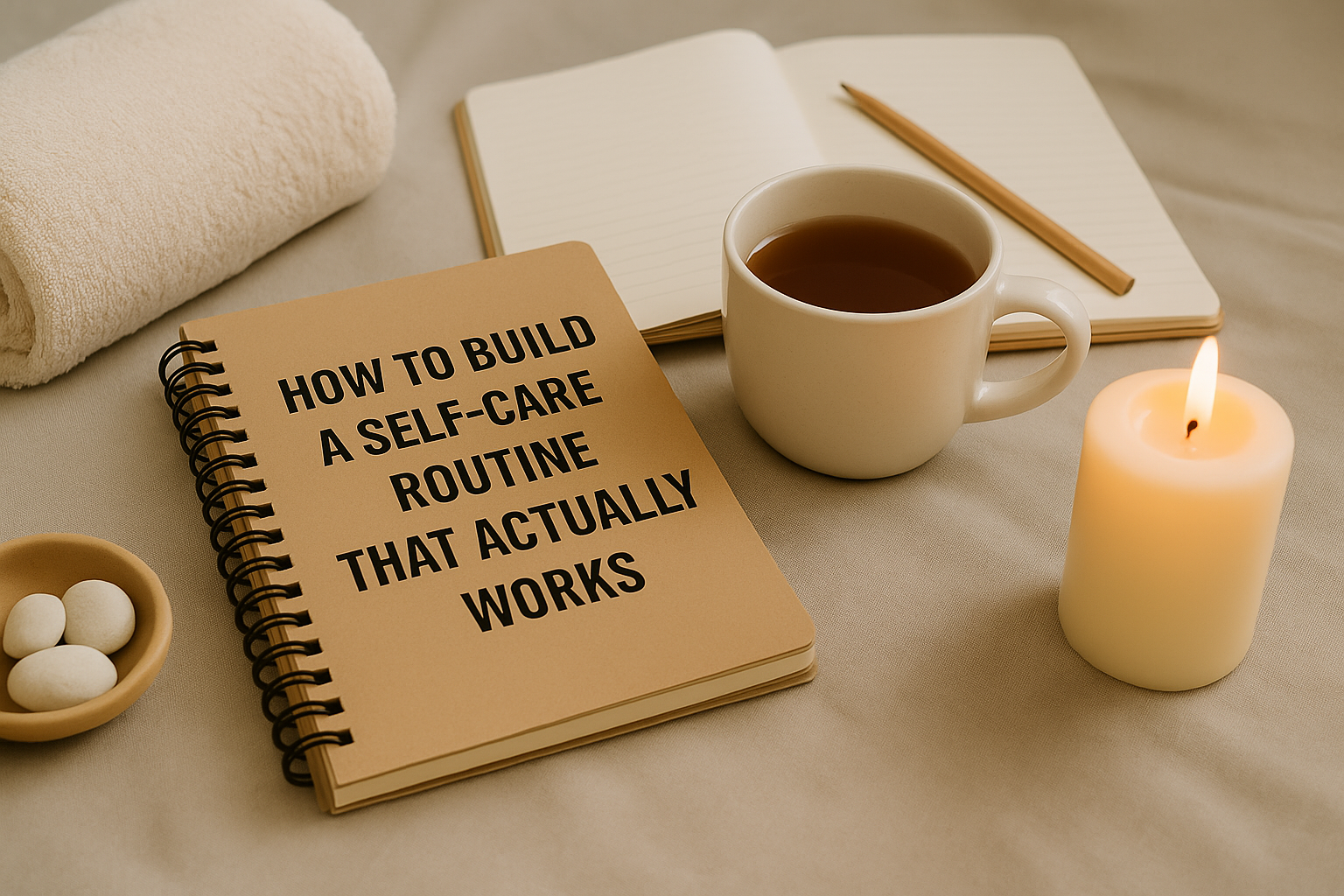Taking care of yourself is not a luxury—it’s a necessity. In a world that glorifies busyness, self-care often gets pushed to the bottom of the priority list. But the truth is, creating and maintaining a healthy self-care routine can dramatically improve your mental, physical, and emotional well-being.
In this article, we’ll break down what self-care really means, how to build a routine that fits your life, and how to stay consistent even on your busiest days.
What Is Self-Care?
Self-care is the practice of taking intentional actions to preserve or improve your health. It goes far beyond bubble baths and face masks. Real self-care involves taking care of your mind, body, and spirit in a way that promotes balance, resilience, and happiness.
It can include:
- Eating nourishing foods
- Setting healthy boundaries
- Prioritizing sleep
- Moving your body regularly
- Practicing mindfulness
- Seeking help when needed
The goal is not to follow a perfect checklist but to create habits that help you feel more balanced, centered, and alive.
Step 1: Identify Your Core Needs
Before you build a self-care routine, you need to understand your needs. These will vary from person to person. Ask yourself:
- What drains my energy?
- What makes me feel restored?
- Where in my life am I feeling overwhelmed?
Start by evaluating the main areas:
- Physical needs: Are you sleeping enough? Eating well? Moving your body?
- Emotional needs: Do you have space to process your emotions? Do you need to talk to someone?
- Social needs: Are you connecting with people who support you?
- Spiritual needs: Are you engaging in activities that help you feel grounded and purposeful?
This reflection helps you pinpoint the areas you need to focus on first.
Step 2: Start Small and Be Realistic
Trying to overhaul your entire life in one week will likely lead to burnout. Instead, focus on small, consistent actions.
Examples:
- Go to bed 30 minutes earlier
- Take a 10-minute walk each day
- Journal for 5 minutes in the morning
- Drink more water during your workday
When these habits become part of your routine, you can build from there. The key is sustainability, not perfection.
Step 3: Design Your Routine Around Your Lifestyle
Your self-care routine should feel natural and not like a burden. Think about your daily rhythms and where you can fit in small acts of care.
Here’s a sample routine you can adapt:
Morning
- Stretch or do light movement
- Drink a glass of water
- Journal or meditate
- Eat a healthy breakfast
Midday
- Take screen breaks
- Eat mindfully
- Walk or stretch between tasks
- Check in with your emotions
Evening
- Turn off screens at least 30 minutes before bed
- Practice a calming ritual (reading, tea, soft music)
- Reflect on what went well during the day
The goal is to create bookends to your day that keep you grounded, no matter what happens in between.
Step 4: Set Boundaries That Protect Your Energy
Self-care often involves saying no to others so you can say yes to yourself.
Examples:
- Declining extra work when you’re at capacity
- Turning off notifications after a certain time
- Scheduling time for rest on your calendar
Boundaries are not selfish—they are necessary. They allow you to show up as your best self without running on empty.
Step 5: Tune In and Adjust as Needed
Life changes—and your self-care needs will, too. What works for you during a stressful month may not be what you need during a peaceful one. Be flexible.
Ask yourself weekly:
- What’s working in my routine?
- What’s not working?
- What do I need more of this week?
Self-care is an ongoing practice, not a one-time fix. Give yourself permission to evolve.
Common Mistakes to Avoid
Here are a few traps to steer clear of:
- Comparing your routine to others’: Self-care is personal. Do what works for you.
- Thinking self-care is selfish: It’s not. It’s how you stay healthy and available for others.
- Trying to be perfect: Missing a day doesn’t mean you’ve failed. Just pick it back up.
- Overloading your routine: Start simple. A full calendar of wellness tasks can become just as stressful as a full work schedule.
Why Self-Care Matters More Than Ever
With rising levels of stress, burnout, and mental fatigue, creating a sustainable self-care routine is one of the most powerful things you can do for yourself. It helps you:
- Build resilience
- Manage emotions better
- Prevent burnout
- Increase focus and creativity
- Strengthen relationships
You become more present—not just for yourself, but for your work, family, and passions.
A Kinder Way to Live
At its core, self-care is about respect—respect for your body, your mind, and your time. It’s about recognizing your limits, honoring your needs, and making space for what truly matters.
Building a self-care routine isn’t about adding pressure. It’s about taking the pressure off.
Even five minutes a day can make a difference.

